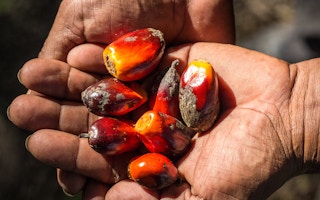The food and agriculture system, including key soft commodities like beef, palm oil and soybeans is a focal point in the global climate crisis conversation – and where it isn’t, it should be. This is because of its significant contribution to deforestation in tropical countries and regions, particularly Brazil and Southeast Asia.
According to the 2023 Forest Declaration Assessment, global gross deforestation reached 6.6 million hectares in 2022, a figure 21 per cent higher than needed to eliminate deforestation by 2030.
However, there is more promise. The COP28 UAE Declaration on Sustainable Agriculture, Resilient Food Systems, and Climate Action, endorsed by 159 world leaders during COP28, affirms that agriculture and food systems must urgently adapt and transform to respond to the imperatives of climate change.
The latest global climate agenda, coupled with heightened deforestation governance, has placed China in the spotlight, demanding action and accountability from the world’s second-biggest importer of palm oil.
China plays a pivotal role in the palm oil industry. The country’s demand for palm oil stands at around six million tonnes annually, heavily reliant on Southeast Asian producers. Recognising the urgent need for change, China has embraced sustainable palm oil practices, demonstrated by its continuously growing membership in the Roundtable on Sustainable Palm Oil (RSPO) that currently stands at 400.
“
With significant influence over supply chains and market dynamics, China can leverage this power to demand sustainability.
It drives the consumption of around half a million tonnes of certified sustainable palm oil (CSPO) in the region. China’s progress, combined with the global palm oil supply chain, has contributed to the RSPO’s 20-year positive impact, which includes certifying five million hectares of global production area and avoiding cumulative greenhouse gas emissions equivalent to those of 444,444 cars since 2015.
Brands remain the driver of change
Multinational brands have taken the lead in driving Chinese suppliers toward sustainable palm oil practices, particularly those certified by RSPO in recent years. This initiative has helped increase the number of manufacturers, traders, and distributors aligning with their clients’ global policies and targets, thereby advancing the share of CSPO in China’s total palm oil consumption.
Consumer goods manufacturers and retailers remain the primary drivers of change. The enforced EU Deforestation Regulation (EUDR) and the upcoming Corporate Sustainability Due Diligence Directive (CSDDD) will require EU companies to cascade sustainability requirements to suppliers through due diligence, extending to all partners along the supply chain.
This will act as a catalyst, accelerating the scrutiny and elimination of potential deforestation, environmental, and social risks by Chinese suppliers. Sustainable development will be further strengthened in China’s green supply chain management practices.
These brands recognise their crucial role in shaping global supply chains and will continue to leverage their influence to demand transparency and accountability from their Chinese partners for long-term business success.
More importantly, while enhancing sustainability performance in the global market, these brands will also implement their policies and goals in China, driving the entire supply chain and encouraging Chinese brands to advance sustainable procurement and consumption.
ESG: the new imperative
Leading Chinese companies are increasingly demonstrating their commitment to sustainability and ESG performance, driven by domestic policy imperatives and growing global investor expectations. Recently, China’s three major stock exchanges in Shanghai, Shenzhen, and Beijing announced guidelines on corporate sustainability disclosure.
Starting in 2026, targeted listed companies will be required to disclose information on climate change, biodiversity, ecosystems, supply chain security, and more.
Corporate due diligence is crucial for achieving sustainable goals. Corporate disclosure not only meets the needs of regulators, investors, and other stakeholders but also helps companies identify and address market and systemic risk factors. For the palm oil industry, this means eliminating deforestation and social risks along the supply chain.
In the Chinese market, leading listed companies and brands have become an important part of RSPO membership. They have already begun taking action: formulating time-bound zero-deforestation policies and goals, building supplier capacity, enhancing transparency, and launching ambitious sustainable palm oil procurement plans.
Strong and enhanced political will
Chinese companies are often more responsive to policies and regulations, making clear government directives, comprehensive laws, and policy guidelines crucial for driving sustainable progress. In recent years, China has been actively participating in and promoting global environmental governance to address climate change, biodiversity loss, and deforestation.
A milestone in this effort was the 2021 signing of the Glasgow Leaders’ Declaration on Forests and Land Use. Following this, China has included commitments to eliminate global illegal deforestation in bilateral statements with the US, EU, France, and Brazil.
The Chinese government and various organisations have conducted extensive policy research on global green value chains and developed strategic frameworks for China’s green value chain. In the future, China is expected to introduce more guiding and encouraging policies that will further drive corporate and market transformations.
China’s emergence as a driving force for sustainable palm oil represents a crucial turning point in the global fight against deforestation and climate change. With significant influence over supply chains and market dynamics, China can leverage this power to demand sustainability, enabling both multinational brands and domestic companies to catalyse transformative change within the palm oil industry.
Lifeng Fang is the Head of China at the Roundtable on Sustainable Palm Oil (RSPO), overseeing the work of transforming the market and facilitating partnership with stakeholders in China.











